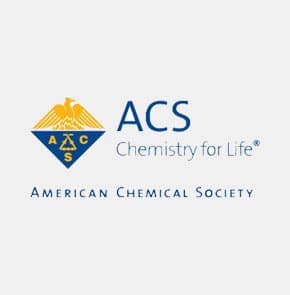Get Matched With Chemical Engineering Programs
What Does a Career in Chemical Engineering Entail?
Chemical engineering is a promising area of study. Those looking to enter the field through a chemical engineering program can expect a wide range of opportunities and a relatively high wage, even without an advanced degree. Chemical engineering majors apply the principles of chemistry, engineering, physics, biology, math, and core courses such as science in chemical engineering, chemical engineering thermodynamics, chemical reaction engineering, chemical engineering analysis, chemical engineering processes, biomedical engineering, and more and use that combination of disciplines to solve problems across industries. A chemical engineering major should teach students to design processes and equipment for manufacturing, production, and facility operations. In most cases, they will work in an office or chemical engineering laboratory setting, but these professionals can work across a range of fields. Those with a background in chemical engineering can work in food production, oil and gas, pharmaceuticals, biological chemical engineering and biological engineering, chemical and biomolecular engineering, petroleum engineering, and more.
A career in chemical engineering starts by earning an undergraduate degree in chemical engineering or a similar field, such as biomedical engineering. Employers look for a combination of practical experience and academics with a focus on science in chemical engineering. As such, internships and hands-on coursework in a chemical engineering degree program can help you get your foot in the door.
Below, we’ll look closely at what you need to know about starting a career in chemical engineering, from how to select the right in-person or online chemical engineering degree to what kinds of jobs you might expect to land after earning your undergraduate degree.

Components of a Successful Career in Chemical Engineering
Chemical engineers begin their career by getting their bachelor’s chemical engineering degree. Both in-person and online chemical engineering programs take about four years to complete, on average and cover a range of subjects from chemistry and engineering to math and biology. Students entering college should already be familiar with these subjects—and those who have taken advanced placement STEM courses will have an advantage. If you don’t have a strong background in math and science, you can still earn an engineering degree, just keep in mind that you may need to complete some prerequisites in addition to the usual curriculum of core courses.
In the workplace, chemical engineers often start out working in teams of other engineers. Together, the engineers work on a larger project and may report to a more senior engineer or a project manager. Entry-level engineers usually begin their career working under the supervision of experienced engineers. Some companies offer on the job training in the form of seminars, courses, or corporate events, while others gain experience working in a junior role and learning from experienced colleagues.
Read MoreMid-career, chemical engineers usually have specialization within their profession. Many engineers choose to specialize in design, sales, production, or development and may have shifted into a managerial role at this point. If you’re considering a managerial role down the road, interpersonal skills will come heavily into play, here.
Senior engineers (those with 10+ years of experience) often work in a project management role or as an organizational manager. Many are involved with coordinating and planning projects, then overseeing the process from start to finish.
Though chemical engineers across the board can expect to earn a six-figure salary, or close to it, earnings vary by industry. For example, private sector engineers make more than those working in public service roles like with the EPA or the US Department of Agriculture.
We should also mention that prospective engineers should seek out opportunities to learn on the job. Many programs emphasize theory over practical applications, and a good internship can help fill in the gaps and provide a chance to make industry contacts in the process. This way, you can build on your chemical engineering degree program courses in science in chemical engineering with knowledge about how the processes work in the real world.
Additionally, you may want to consider getting relevant certification. While in most cases, chemical engineering doesn’t require licensing and certification, those hoping to secure work in more prestigious institutions should consider obtaining an additional credential to remain competitive.
Compare Popular Online Chemical Engineering Programs
How to Become a Chemical Engineer
Typical Online Chemical Engineering Degree Requirements
An online associate degree takes about two years to complete. On average, students will take about 60 credit hours that cover the basics of chemistry, math, physics, and more. Most two-year online programs don’t offer a degree in chemical engineering, but students can take their general education classes, then transfer to a four-year program to earn their bachelor’s degree.
A typical online bachelor’s degree is 120-130 credit hours, taken over four years. Students will start with foundational coursework in multiple disciplines: organic chemistry, general chemistry, plus math, as well as general education requirements like English or social science. As students progress, they’ll take classes like thermodynamics and kinetics, work in the lab, and more. The goal of an online bachelor’s program is to prepare students to enter the workforce as an engineer, though some schools focus more on preparing students for graduate programs.
An online master’s degree in chemical engineering is designed for students who want to focus on a specialization. These specializations include things like nanotechnology, biotechnology, thermodynamics, as well as environmental or energy-focused programs.
Find Your Online Chemical Engineering Program
Typical Chemical Engineering Certifications Needed

Later in your career, however, you may choose to earn advanced certifications like the Certified Reliability Engineer Certificate. Or, they may decide to obtain a credential within their specialty; biomedicine, food, energy, materials, or environmental engineering. Ultimately, earning additional credentials can help you advance your career, but requirements vary by role.
Academic Standards for an Online Chemical Engineering Degree
Chemical engineers must use their knowledge of math, chemistry, and engineering to create equipment, processes, and products. Coursework will include physical, organic, and analytical chemistry. Non-chemistry requirements include physics and calculus.
Exam/Experience Needed for a Chemical Engineering Degree
Chemical engineers need at least an online bachelor’s degree to get a job within this discipline. Those who wish to pursue a specialization or an advanced role in management may choose to earn a master’s degree. Chemical engineers must graduate from an ABET-accredited program to qualify to work in most reputable companies, and many states require new engineers to become licensed.
ABET accreditation demonstrates that a school adheres to a set of academic standards and will provide them with the skills needed to find work in the industry. To succeed as a chemical engineer, students must have a varied skillset. This profession demands competency in calculus, physics, and engineering, as well as chemical processes, reactions, and standard safety procedures.
Online Associate’s Degree
Those looking into earning an associate degree in chemical engineering online should be aware that there isn’t such a thing. That’s not to say you can’t obtain an AA in a related discipline and transfer to a four-year school. Just keep in mind that an online associate on its own won’t land you the chemical engineering job of your dreams.
Example Courses:
- Chemistry
- Algebra
- Computer Science
- Physics
Online Bachelor’s Degree
An online bachelor’s degree in chemical engineering is the minimum required to work as an engineer. Typically, an online bachelor’s degree takes about four years to complete and covers the full scope of chemical engineering topics, as well as general education courses.
Example Courses:
- Calculus
- Engineering
- Organic Chemistry
- Molecular Biology
- Environmental Engineering
Online Master’s Degree
Earning an online master’s degree in chemical engineering may be worthwhile for those looking for a broad range of job possibilities and a high salary. A master’s program is an excellent choice for chemical engineers that want to specialize in a specific area or increase their chances of landing a higher-level role.
A Ph.D. is ideal for those students that have their sights set on becoming an academic, engaging in research, and teaching at the college level. At this stage, Ph.D. candidates will dive deeper into advanced chemical engineering theories.
Example Courses:
- Thermodynamics
- Nanotechnology
- Chemical Reaction Engineering
- Energy and Environmental Technology
Fields of study:
Chemical Reaction Engineering: This specialization focuses on the management of chemical reactors. Earning a degree in this area prepares students to manage reactors and plant operations.
Process Engineering: Process engineering is the application of chemical engineering principles to control chemical processes. This curriculum centers around a range of processes like filtration, crystallization, distillation, filtration, and drying. You’ll also learn about fuel sources, energy consumption, and the regulatory and safety concerns within the energy sector.
Process Design: Process design students will become experts in designing unit processes. You’ll learn to create processes, as well as design the equipment needed to carry out that process.
Plant Design: Plant design is a specialization that involves creating plans, specifications, and economic analyses for industrial plants. The curriculum focuses on the design requirements for things like heat exchangers, pumps, phase separators, and how to take economic, safety, and regulatory factors into consideration during the design process.
Salaries
The median wage for chemical engineers is about $98,000 per year without supervisory responsibilities or an advanced degree. Chemical engineers usually earn a bachelor’s degree and that four-year education allows them to enter the workforce. Unfortunately, there’s no option to specialize in chemical engineering at the associate level. So, aspiring engineers should plan on attending a four-year school at a minimum to find work in this field.
Still, an AA is a good starting point for students looking for an affordable way to get some of the general education courses out of the way. Those interested in a chemical engineering degree should focus on courses like chemistry, physics, math, and biology as these courses will best prepare them for the curriculum in an ABET-accredited chemical engineering program.
At the master’s level, you may be eligible to earn more than your peers with a bachelor’s degree. You’ll also be able to further specialize in a specific subset of the field, which can increase your prospects, as well.
| Degree Level | Associate’s Degree Range Cost | Bachelor’s Degree Range Cost | Master’s Degree Range Cost |
|---|---|---|---|
| $38,000 | $180,000 | $40-$120,000 |
Potential Careers & Salaries for Chemical Engineering Grads
The average salary for a chemical engineer is about $73,000—but salaries can top $100,000 within a few years. While you can expect to earn a comfortable living with just a bachelor’s degree, you might want to look into a master’s program if you’re interested in becoming a specialist. Graduate degree programs that prepare you for roles in the energy sector or academia require you to already have an undergraduate degree. The average salary for a chemical engineer with a master’s degree is $99,000, but earnings depend on where you work and experience on the job.
Chemical Engineering Median Salaries by Occupation
Annual Median Salary by Occupation
| Occupation | Entry-Level Salary Range | Mid-Career Salary Range | Late-Career Salary Range |
|---|---|---|---|
| Corrosion Engineer | $62,400 | $100,100 | $108,600 |
| Air Quality Engineer | $72,200 | $78,500 | $113,000 |
| Chemical Engineer | $67,400 | $87,500 | $123,900 |
| Process Engineer | $65,900 | $83,600 | $90,500 |
| Project Manager, Engineering | $64,600 | $90,500 | $115,600 |
Find Online Chemical Engineering Programs
-
Air Quality Engineer:
One career path to consider is air quality engineer. This specialization is all about monitoring chemical emissions as they pertain to environmental issues. Air quality engineers spend time out in the field, collecting data that they use to ensure a region’s compliance with state or federal regulations. Additionally, this person may also work with companies and agencies to develop power plants or help businesses reduce emissions produced during regular operations. Finally, an air quality control engineer may also work to limit and reduce pollution.In some cases, engineers might be able to find work after earning a bachelor’s degree only. However, most professionals in this specialization hold an advanced degree, and obtaining a master’s or Ph.D. can make a candidate all the more appealing to employers.
-
Corrosion Engineer:
Corrosion engineers need to have a strong understanding of how chemical reactions affect certain materials. Chemical engineers in training may specialize in corrosion, which describes the process of materials degrading due to environmental conditions.In this role, engineers work to protect roads, power plants, and buildings from adverse environmental conditions by developing protective methods and materials like coating systems, sealants, and so on. To find work as a corrosion engineer, you’ll need to have at least a bachelor’s degree in engineering, as well as a certification from the National Association of Corrosion Engineers.
-
Chemical Engineer:
The title chemical engineer applies to engineers working in a wide range of industries. In this role, you might work in chemical manufacturing, oil and gas, or materials manufacturing. Most chemical engineers work in an office or lab setting, or they might spend time in a refinery or industrial plant and even work alongside industrial engineering professionals.Chemical engineers research to develop new manufacturing processes, as well as establish safety procedures for working with toxic chemicals. Additionally, chemical engineers plan and design equipment layout, and monitor the performance of critical processes within a facility. Entry-level engineers start by working in teams and eventually might work their way up into a supervisory role. To get started, you’ll need a bachelor’s degree, but a master’s or doctorate may help you fast track your career or open up higher paying roles.
-
Process Engineer:
Process engineers design processes and equipment for large-scale manufacturing companies. In this role, you can expect to spend a lot of time conducting research, planning, and testing new methods. Process engineers must be skilled at solving problems like meeting quality standards while keeping costs down. They may also develop safety procedures for handling dangerous chemicals and reviewing production schedules. -
Project Manager:
Project managers are responsible for planning, sourcing materials, and executing projects. This person must have a strong set of soft skills, as they’ll be the first point of contact with other departments or outside clients. PMs develop work schedules, create milestones and workflows, and make sure all projects are running according to plan.
Important Questions to Ask (FAQ)
Search Online Schools Offering Chemical Engineering Majors
How long does it take to earn an Chemical Engineering bachelor’s degree online?
A bachelor’s degree takes about four years, on average to complete. Students will be required to take between 125 and 140 credit hours to graduate, depending on which school they choose to attend. An online degree may be hard to come by, particularly in chemical engineering, where a good portion of your education will require lab work, group projects, and usually an internship during your final year of study. Many classes, especially early on, may be taken online—however, those specific to your major may require at least some in-person coursework.
How much does an Online Chemical Engineering bachelor’s degree cost?
Chemical engineering degree costs vary by program. Attending an in-state school will cost less than enrolling in an out-of-state program, and private schools tend to be more expensive than public universities. According to the College Board, the average annual cost of tuition and fees was $34,000 for private colleges, $9,900 for in-state public colleges, and $25,000 for out-of-state students at public universities.
Does the school have the major(s) you’re considering?
To become a chemical engineer, you’ll need to major in chemical engineering or general engineering. The latter option means that you may have some catching up to do after graduation, training for certifications, for example, but the right electives may help you gain the experience you need to get right into the chemical engineering field.
How many students graduate “on time,” in four years?
Graduation rates can give you some clues into the quality of a program. Most students graduate between four and six years after starting a program, but a high dropout rate could indicate that a program doesn’t provide all of the resources you need to succeed. Check out the faculty and their qualifications and read reviews from current students, grads, and dropouts. Look at whether the school offers any training programs, internships, or financial aid; all of these things come together to paint a picture of whether a school can set you up for success or if you’ll be going into debt or struggling with your course load.
What kind of accreditation does the program hold? How is it regarded in the field?
When looking at accredited programs, you’ll want to consider whether the school has received ABET accreditation. ABET is the professional organization responsible for evaluating engineering programs, and many employers seek out this designation when reviewing qualifications. It’s also worth pointing out that if you do choose to pursue further credentials like your FE or PE certification, you’ll need to have a degree from an ABET-approved school. Additionally, you will want to look for schools that have a regional accreditation, which means that a school meets an agreed upon set of national standards, thus ensuring that a bachelor’s degree from one school holds similar weight to a bachelor’s from another.
Software, Technology & Skills Needed
- Creativity:
Chemical engineers work with chemical compounds and turn them into new materials. From there, engineers create innovative applications for these materials, a task which requires an ability to envision a whole realm of possibilities. Engineers need to be creative, imaginative, and flexible or innovation won’t come easy. - Communication:
Communication skills will serve you well as a chemical engineer. During your studies, there will be greater emphasis on hard skills like chemistry, computing, and math but don’t write off the ability to communicate well. Whether you’re writing reports or working on a team, communication is essential. - Math:
Chemical engineers rely on advanced math concepts like algebra, calculus, and trigonometry to develop a range of materials and products. Those pursuing a career in chemical engineering should have a decent command of mathematics going in. That said, taking classes toward your major will help you understand how to put your knowledge into practice. - Problem-Solving:
Engineers of all kinds are problem solvers by trade. Chemical engineers spend their days considering how chemical compounds can be used to create new products and how to troubleshoot when things don’t go according to plan. CEs should be naturally curious, interested in tinkering and tweaking experiments into a usable product.
Chemical Engineering Scholarships
-
Barry M. Goldwater Scholarship and Excellence in Education Program
Amount: Up to $7,500
Deadline: Deadlines for each step (first Tuesday in September through last Friday n January)This scholarship is awarded to students majoring in scientific disciplines, including chemical engineering. Students must demonstrate educational excellence and be nominated by a faculty member. The scholarship is worth up to $7,500 in tuition per academic year.
-
Cognizant Making the Future Scholarship Program
Amount: $5,000
Deadline: December 1The Cognizant scholarship is designed to support the next generation of innovators currently working toward a STEM degree. Making the Future is a design scholarship and students must create a hands-on project, documented on video. To apply, you must be enrolled in a two or four-year college, or a vocational program and hold a 2.5 minimum GPA.
-
Joseph James Morelli Scholarship
Amount: $500-$2,500
Deadline: March 14This scholarship fund was designed to help students with dyslexia achieve their college degree. These days, the scholarship is available to students with a learning disability who intend to pursue a degree in STEM. Applicants must share a personal essay about the challenges they’ve faced in their educational career and how they plan to use the scholarship to better their lives in the future.
Get Matched With Chemical Engineering Colleges
Professional Chemical Engineering Organizations
- ACS
- AIChE
- AEE
- ICE
- IAE

ACS
American Chemical Society
The ACS is a nationally recognized organization that seeks to advance the chemistry profession by providing resources to students, chemistry professionals, and institutions. This organization offers a job board, events, and career advancement opportunities.

AIChE
American Institute of Chemical Engineers
The AIChE is a leading global organization for chemical engineering professionals. Their vision is to advance the chemical engineering field by providing access to career information, training opportunities, events, and discounted products to their members.

AEE
Association of Energy Engineers
The AEE is a professional organization for engineers, chemical or otherwise, working in the energy industry. This organization seeks to advance the scientific and educational interests of the energy industry, providing educational and professional resources to energy managers. The site promotes several energy conferences, which take place around the country, job opportunities, and certifications.

ICE
Institution of Chemical Engineers
IChemE is a professional organization that functions as a professional development resource for chemical engineers. Membership comes with access to a network of professionals over 40,000 in-depth articles both technical and opinion, a knowledge base, and training programs.

IAE
International Association of Engineers
IAENG is a non-profit that serves all kinds of engineers. The group offers a sub-group for chemical engineers, which provides access to events, workshops, networking, and career opportunities.
Choosing an Accredited College
In a field such as chemical engineering, accreditation matters a great deal. To work as a chemical engineer, a four-year degree is essential. On top of that, you should look for schools with an ABET accreditation, as well as regional accreditation. The first designation will tell you whether a school offers a credible engineering program, while the second signals that you’ll be attending a school that has met certain all-around standards. Regional accreditation is awarded by one of six organizations affiliated with the US Department of Education and is assigned to more “traditional” schools, state and private universities, liberal arts colleges, and so on. For-profit schools tend to fall outside of the regional jurisdiction and typically operate according to their own set of standards.
Online vs. On-Campus vs. Hybrid
Engineering programs of all kinds require students to participate in several hands-on courses, meaning it might be difficult for students to find a fully-online program that fulfills all the course requirements included in a chemical engineering program.
Frequently Asked Questions
Why earn a master’s in chemical engineering?
You may have heard that you can find a well-paid career without continuing your education in chemical engineering. Just a bachelor’s degree can get your foot in the door and then you can gain experience to improve your prospects. However, while this is true, there are good reasons to continue your education. For one thing, it can help you to specialize within the field. It’s well known in STEM fields, that those with specialized knowledge are often at the forefront of innovation and income. A master’s can broaden and deepen your understanding and allow you to achieve the highest possible level of success.
What can you do with a bachelor’s degree in chemical engineering?
Of course, with this degree you could become a chemical engineer or even a senior chemical engineer with a large pay bump. But you could also work as a chemical process engineer, with slightly different objectives, or you could work in research and development. You’ll still be doing chemical engineering work, but you’ll be solving problems and perhaps leading research teams in these positions. Those with a bachelor’s degree could, after gaining more experience, even find themselves working as managers in the engineering field.
Who should pursue this degree?
First, you might want to get through some basic engineering courses before you decide if chemical engineering is right for you. You’ll also want to be comfortable with chemistry courses. If you struggled with chemistry in high school, but picked right up on physics, you might want to consider going into a different kind of engineering. There are plenty to choose from.
Does the College Have Post Graduate Job Placement Help & Assistance?
Job assistance is another primary consideration. Landing the right job after graduation can help you get started on the right path where wages are concerned. When researching schools, make sure you look for programs that offer more than just the degree. Instead, see if they have recruiting events, networking opportunities, mentorship, and an on-campus career center.
Why You Need to Consider the Overall National Rankings of the College and The Effects on Your Career or Salary
Chemical engineering professionals who graduate from a highly ranked school will have their choice of jobs upon graduation.
Additionally, it’s worth pointing out that many chemical engineering professionals go on to earn a master’s degree or Ph.D. If you’d like to graduate with your choice of graduate schools at your disposal, receiving high marks from a top university can be a great stepping stone. That said, an ABET-accredited program, whether it’s a public university or an Ivy League institution, will serve you well. However, the better the school, the better some of the softer benefits that come with the degree.
For example, a school with a top program might offer access to renowned faculty members, state-of-the-art facilities, and connections that can turn into jobs after graduation. We recommend going for the most competitive school that you can get into, and that you can afford, as it may help your job prospects, especially right after you graduate.
